Every year, about 100 students choose Washington University School of Medicine. Here, see some of the reasons we chose WUSM.
We asked our classmates, “In one word, what do you like/appreciate/enjoy/value most about WUSM?” Here are some of the most common responses:
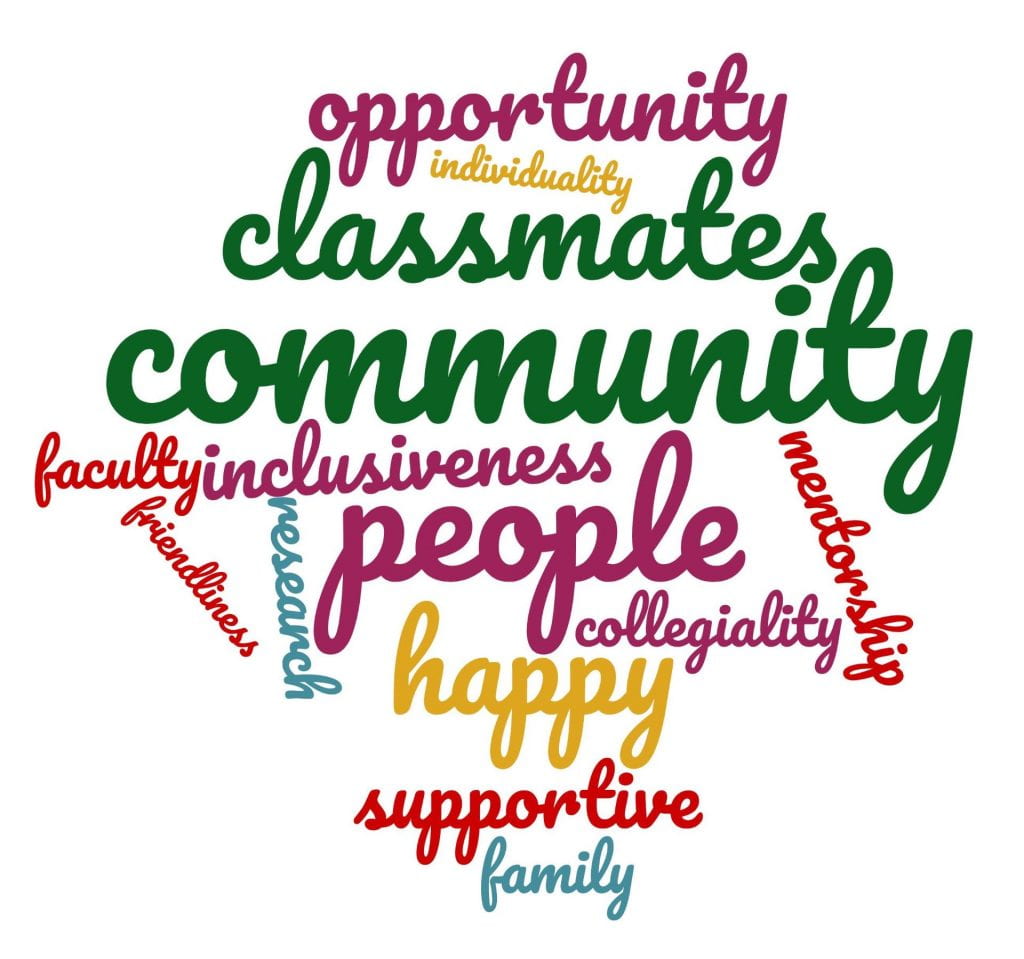
Aaron G., M1
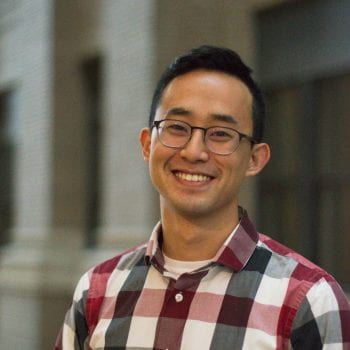 From the pre-interview dinner to interview day to Second Look weekend, at no other school had I interacted with so many current medical students — and not just the obligatory M1’s, but M2’s, M4’s, and even one magical M3 in the midst of his Medicine rotation. For me, it was a testament to the fact that WashU students had: (1) free time, (2) a constant stream of free food, and (3) a genuine interest in applicants coming to their school to share (1) and (2). Now as an M1, I’ve realized these three points were downstream effects of something deeper: a structure that provides space for students to be more than Anki-smashing robots. Yes, WashU has great educators, incredible research, and offers diverse hospital opportunities, but these aren’t what make it unique. It’s the empathetic and deeply invested administration that pushes the class to build its own community starting from day one: an intentionally small class size, an extended orientation, support for dozens of student groups, frequent faculty and student mixers, and a curriculum that doesn’t incentivize competition because it knows every student will be excellent. Students here aren’t chained to grades or cutthroat tactics, and it frees time and energy to build relationships, pursue interests, mentor and be mentored, and explore enough of the city to realize living in St. Louis isn’t so bad. Or perhaps it’s the hospitable Midwestern spirit that permeates the air and seeps through the skin making everyone friendlier. Whatever the reason, WashU gives the space for students to be happy.
From the pre-interview dinner to interview day to Second Look weekend, at no other school had I interacted with so many current medical students — and not just the obligatory M1’s, but M2’s, M4’s, and even one magical M3 in the midst of his Medicine rotation. For me, it was a testament to the fact that WashU students had: (1) free time, (2) a constant stream of free food, and (3) a genuine interest in applicants coming to their school to share (1) and (2). Now as an M1, I’ve realized these three points were downstream effects of something deeper: a structure that provides space for students to be more than Anki-smashing robots. Yes, WashU has great educators, incredible research, and offers diverse hospital opportunities, but these aren’t what make it unique. It’s the empathetic and deeply invested administration that pushes the class to build its own community starting from day one: an intentionally small class size, an extended orientation, support for dozens of student groups, frequent faculty and student mixers, and a curriculum that doesn’t incentivize competition because it knows every student will be excellent. Students here aren’t chained to grades or cutthroat tactics, and it frees time and energy to build relationships, pursue interests, mentor and be mentored, and explore enough of the city to realize living in St. Louis isn’t so bad. Or perhaps it’s the hospitable Midwestern spirit that permeates the air and seeps through the skin making everyone friendlier. Whatever the reason, WashU gives the space for students to be happy.
Maybe you’re looking for a good interview answer. Maybe you’ve been accepted and managed to convince the admissions committee that you want to live in St. Louis, even if you haven’t really convinced yourself. Maybe you’re sitting on multiple great acceptances and need an Excel sheet, two tables, and a figure with p-values before you can press the “Commit” button. Or maybe you’ve already made the leap and just want some external reassurance. Wherever you are in the process, I wish I could tell you that Washington University in St. Louis is objectively the best school for any future medical student; however, the frustrating, corny truth is that the “why” is different for everyone. Instead, I hope I’ve convinced you why WashU is the best place for me, and I sincerely hope it’ll be the best place for you too.
Kwasi E., M1
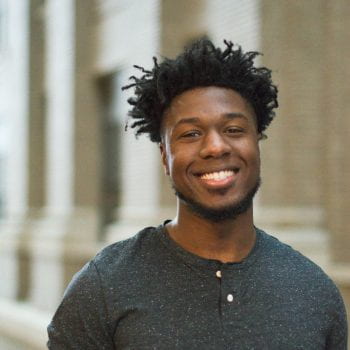
For me, the journey of applying to medical school happened throughout 24 countries on an international a cappella world tour. In between writing apps 36,000 feet in the air, eating street food on the ground, and blowing out my voice in concert halls, I started thinking about what would really matter to me forty years down the line when I looked back at my choice of medical school. I actually had not even considered WashU until one of my fellow singing friends from Yale, now an M3, told me if I truly wanted to be in a warm, friendly environment for medical school, I should apply. My East Coast-born and raised mind said, “Yeah … we’ll see.”
Six months later, I missed my flight to St. Louis, arrived on campus about 30 minutes before my first interview, changed rapidly in the FLTC atrium’s bathroom, and was welcomed by smiles across the admission’s staff faces when I told them about my blunder. Then, I spent two hours talking to physicians about my dreams in medicine, how I wanted to play a role in changing patients’ ability to access and pay for health care across the country, and about my favorite destinations for food across the world. And they listened. And laughed. And challenged my thoughts along the way.
Maybe that was why I thought WashU felt like home? Maybe it was the gourmet lunch of tacos, enchiladas, tostones, and more on interview day? Maybe it was the glee I felt when this top medical school gave me a financial aid package that blew my other offers out of the water? I am not sure how to put my finger on it, but I knew WashU genuinely cared, and I took a leap in accepting their offer. They cared to give us the torturous history of WashU and St. Louis over orientation. My professors, who challenge our nation’s government on how to prevent gun violence or make health care affordable, care to spend time with me in school, in their offices, and in their homes. My classmates give each other caring looks when we inevitably fumble over clinical vocabulary and drop tools in Anatomy lab, acknowledging that we’re witnessing the humble beginnings of future leaders in medicine. I think it’s that feeling of faith that we are going to make great strides in providing, transforming, and teaching care, which made me realize “Why WashU” is home.
Alison Snyder-Warwick, MD, FACS

Director, Facial Nerve Institute of St. Louis Children’s Hospital
Assistant Professor of Surgery, Division of Plastic and Reconstructive Surgery, Washington University School of Medicine, MD ’04
The answer to “Why WashU?” is, for me, immediate and simple … the people. While other medical schools may also provide exceptional training and consistently appear at the top of the rankings, WashU sets itself apart by the culture that is created here by its best resource, the people. Upon visiting WashU for medical school interviews (now 20 years ago!), I was impressed by the way the students gushed about the school. Students didn’t seem stressed; they were inspired and obviously happy! WashU’s leadership also gave a clear message of caring about student input and changing curriculum, policies, etc., based on valuable student feedback. The resulting atmosphere was incredibly positive — students and administration alike were excited about the future, and it was clear that the Institution is incredibly proud of its students. I did not encounter that same atmosphere on any other interview.
Upon matriculating to WashU, my instincts did not steer me wrong. The atmosphere has always been supportive. You feel that people care for you, want you to succeed, and have big expectations for your future. Students work as a team and make each other better as a result. My medical school experience was demanding, but rewarding, and absolutely enjoyable! While I never originally intended to stay in St. Louis long-term, I realized at the time of residency interviews that I did not want to leave the culture here. Everyone is treated with respect and as a valuable contributor to the team. Being treated with respect through demanding surgical training was important to me. Although I trained outside of WashU for fellowship, I joined the WashU faculty for similar reasons. The people here are world-renowned experts in their respective fields, yet they are generous with their time and ideas. It is exponentially productive to collaborate with other exceptional physicians and scientists who are passionate about their fields, yet humble, honest, and excited to consider new ideas. Because of this environment, WashU has, and always will be, a leader in innovation. The recipe of exceptional people who are passionate about their work, incredible teammates who share similar ideals, and a supportive work environment fosters productivity and discovery. It is a great place to be!
Maggy B., M1

During my undergraduate and master’s years, I’d learned to exist in a particular kind of academic environment that didn’t really work for me. I thought that the experience of undergraduate and graduate training was necessarily a little bit isolated and independent, where you provide most of your own support system, and the search for mentorship was largely driven by luck.
As a result, I started my med school application process believing that my experience at any given school would be much like that and so the only factor that mattered in choosing a school was ranking. That pretty much held up through most of my school visits and interviews. WashU was my last interview, and knowing the stellar rankings and reputations that WashU possessed, I expected that I knew all I needed to know about WashU coming into my interview day.
However, in my brief visit to WashU, the faculty certainly, but especially the students, conveyed such warmth, generosity, and a genuine enthusiasm about WashU. Everywhere else I’d visited, it was clear that students were proud to have gotten in to each given institution, but here they seemed so proud of the institution itself: Proud to be a part of what WashU offers and excited to share the way they’d been affirmed and supported in their time at WashU. I remember the names of nearly every student I met at WashU because each one was so invested in our interaction; they really seemed to care that I got the information I needed to find out whether WashU was the right fit for me.
At WashU, I realized I was interviewing schools as much as they were interviewing me. I concluded that I wanted to train somewhere I would be happy and supported, where faculty go out of their way to affirm my interests and offer me opportunities individually, where students work with each other and bond rather than just studying in parallel, and living in a city in which I could afford to enjoy the world around me. Since arriving, I constantly find myself appreciating how much the culture at WashU has allowed me to thrive in medical school in a way I never did in my undergrad or graduate schools.
Tirth P., M4 MSTP

I graduated from UCLA and came to WashU in 2011 (before Edison invented the light bulb), drawn primarily by the academic strength as well as the opportunity to live in a different part of the country. It didn’t hurt that, as an MD matriculant, I received a generous financial aid package. During my first year I became interested in doing research, and I subsequently transferred to the MSTP as an internal applicant. I figured I had nothing better to do with my time, and my twenties was the right decade to spend in the lab. What initially began as a four-year commitment to this institution became a nine-year extended stay. The biggest strength of this place is the kind of people it attracts, nurtures, and supports. In my time in the lab and in the hospital as a third- and fourth-year student, I have received spectacular mentorship, unparalleled support, and virtually limitless access to resources to pursue my goals. Our MSTP community is huge, which means you are never alone when you hit that inevitable impasse (the scientist’s block, if you will) in lab. I have been on the neurology residency interview trail, crisscrossing the country for the past two months, and it has given me an even greater appreciation for the vibrant and brilliant community of physicians, scientists, and others that we have here. I came to WashU as a wide-eyed 21-year-old; I will be a grey-haired 30-year-old by the time I graduate in May 2020. I formed many meaningful friendships here, lived through their breakups, marriages, and the births of their children, and I am excited to see what my friends accomplish in the future. Virtually my entire twenties was spent here at, and I can’t imagine having spent it anywhere else. I learned how to be a meticulous scientist, an empathetic physician, and a conscientious human being at WashU, and I am incredibly proud to be associated with this institution.
Vera T., M1

I applied to schools all over the country and I was incredibly fortunate to interview at a number of fantastic institutions. I quickly went from worrying about whether I would get in anywhere to how I could possibly choose. As I weighed my options, I had two major concerns. The first was obvious: to get into a strong program that would set the foundation for the rest of my career and provide me the most opportunities possible. The second emerged as I travelled around the country interviewing and often staying with student hosts. I started out imagining that I would sacrifice anything to make my ambitions a reality, I’d live in a shoebox, eat ramen every day, live the most frugal possible existence, if that is what it took to go to the best school. Then I looked at my real life. If I’m stressed about money, it’s hard to focus and learn. Living in a tiny place would mean giving up hobbies and re-homing pets. I get sick if I eat ramen too often. I started looking at schools in terms of how I would live my whole life while being a student there — academics and career a big part, for sure, but supported by all the rest of it. When I came to interview at WashU I had been reflecting on this and worrying that I’d have to sacrifice going to the best school in order to live comfortably enough to be the best and most effective version of me in medical school. I knew about the low cost of living in the Midwest, but being here and seeing how well WashU would support me in all the career goals I have while also seeing that I could live well here — I had this moment of “Oh my gosh, this is it, I can have both.”
Juliane Bubeck-Wardenburg, MD, PhD

Division Chief, Pediatric Critical Care Medicine
Donald B. Strominger Professor Researcher, Pediatric Research, Washington University School of Medicine, MD/PhD ’01
Why WashU – twice? As a WashU undergraduate, the medical campus was just across Forest Park, and seemed like a good place to have a lab job for one aspiring to become a medical student. The job I found initially afforded an opportunity to apply my skills at making solutions, but ultimately became a vantage point from which to see the collaborative research environment at the School of Medicine, and to appreciate the vast amount of medically-relevant scientific inquiry here. I chose to pursue my combined MD/PhD training at WashU as I was consistently impressed with the rigor of the scientific environment and the way in which graduate students were an integral part of ongoing research, and the focus of incredible investment by the faculty. As a student, it was simply exciting to be surrounded by discovery in both the clinical and research domains of the School of Medicine, but perhaps more importantly, by a cadre of physicians, scientists, and educators who were passionate about every aspect of their ‘work’.
Some 15 years after completing my MD/PhD, I returned to WashU as a member of the faculty. I returned for the exact same reasons I pursued my initial training here – the vibrant scientific environment, the spirit of inquiry that permeates the clinical and research arenas, the collaborative nature of the people, and the dedication to the next generation. When I was a student, I could not envision a better program in which to train as an MD/PhD; now as a faculty member, I cannot envision a better place to be a practicing physician scientist.





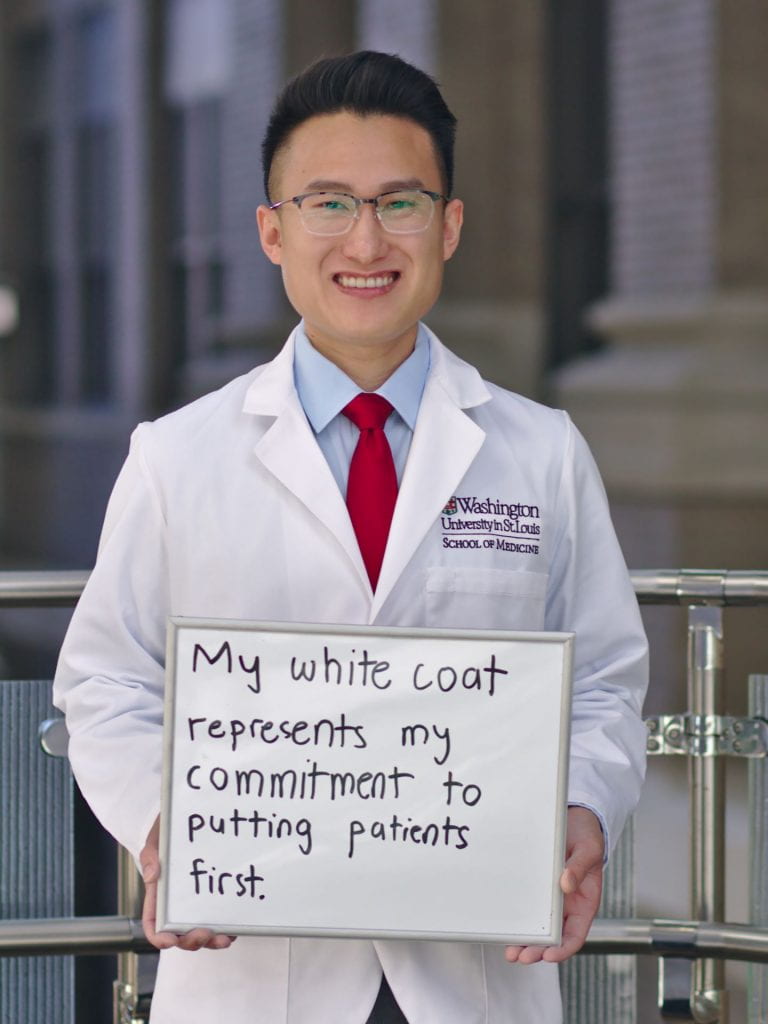



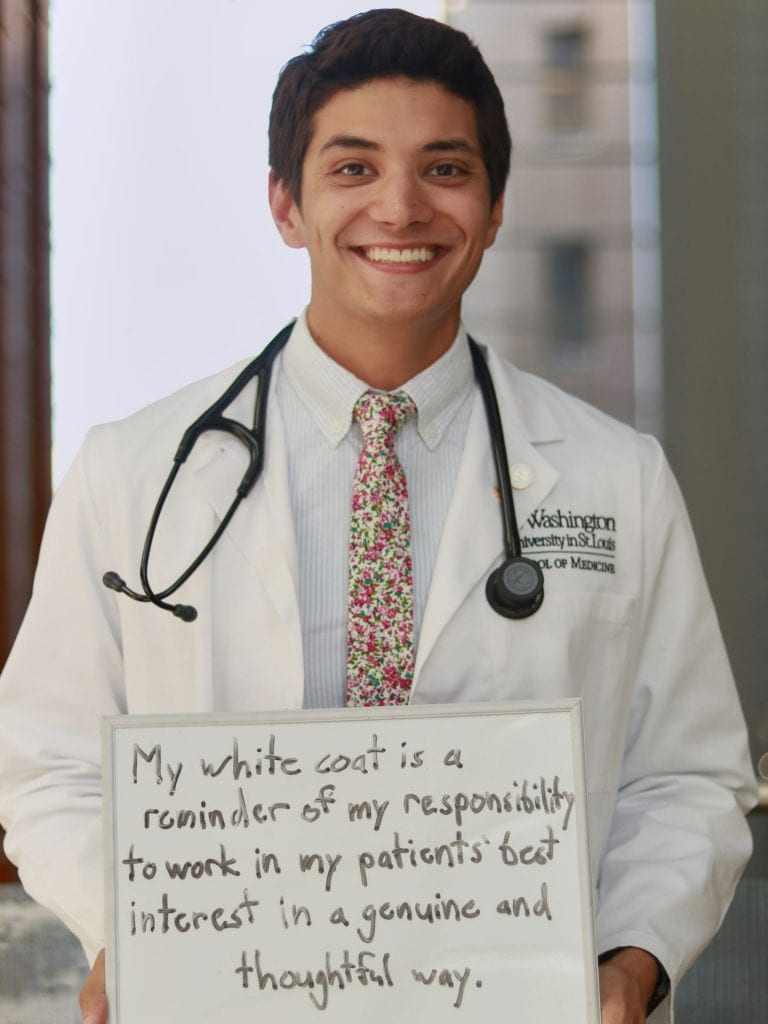


Section Editor
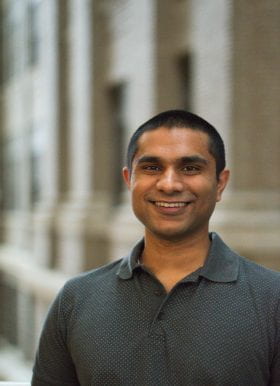
Collin Nadarajah
Why WashU Section Editor
I am from Dallas, Texas, and did my undergraduate education at WashU; I decided to stay here for the Medical Scientist Training Program (MSTP). I am an avid baseball fan and long for the day the Texas Rangers win the World Series.